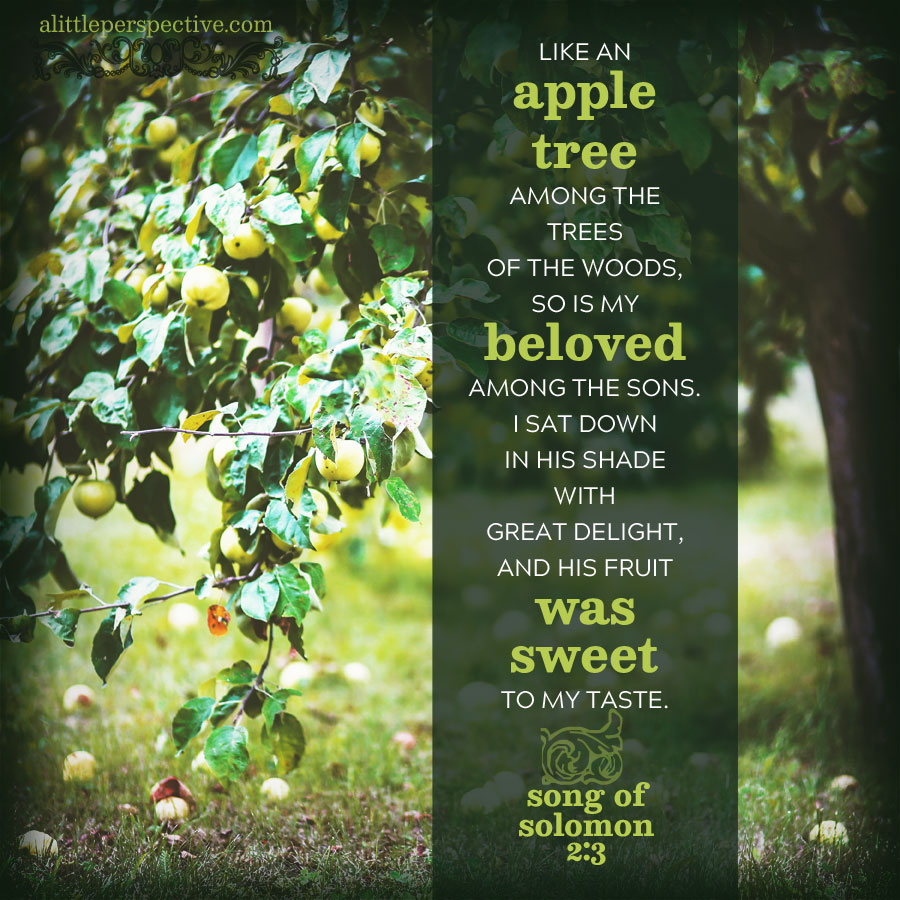The first occurrence.
And out of the ground the LORD God made to grow every tree that is pleasant to the sight, and good for food; the tree of life also in the midst of the garden, and the tree of knowledge of good and evil. Gen 2:9
(In the pictured verse, “I sat down in his shade with great delight …”)
The primitive root.
Strong’s H2530 חמד chamad, a primitive root meaning, “to desire, to covet, to delight in.” The 3-letter root is chet + mem + dalet.
chet ח = the wall, thus outside, divide, half
mem מ ,ם = the water, thus chaos, mighty, blood
dalet ד = the door, thus enter, move, hang
The story: According to the Ancient Hebrew Lexicon, related words in this family are “cheese,” “heat,” and “sun,” because of the ancients’ method of making cheese. They poured milk in an animal skin bag, and then hung it out in the sun while pushing the bag back and forth to mix the contents. The heat and the mixing activated an enzyme which caused the milk to separate into curds and whey. Thus the separated (chet) milk (mem, as indicative of any liquid) which was moved back and forth (dalet, as a door swings back and forth on its hinges) created cheese.
Then what is the connection of the root chamad to coveting? The related word “cheese” is a concrete noun, and its verbal form means “to heat,” from the heat required to turn the milk into cheese. From its meaning of “to heat,” then, comes the Hebrew word for fury, ( hot anger), and interestingly enough, conception. We still say today that animals conceive their young when they are “in heat.”
So to covet something is to desire it like the desire of the heat of lust.

















Leave a Reply